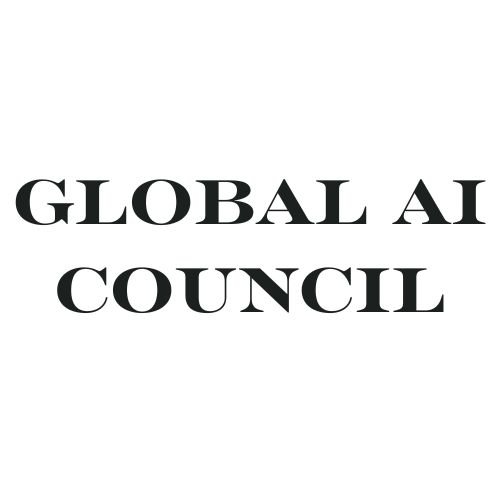AI in Education: Personalized Learning and Beyond
Artificial Intelligence (AI) is revolutionizing various industries, and education is no exception. As technology continues to evolve, AI is paving the way for personalized learning experiences, enhanced educational tools, and more efficient administrative processes. Here's how AI is transforming education and what the future holds for AI-driven learning.
1. Personalized Learning Experiences
One of the most significant impacts of AI in education is the ability to provide personalized learning experiences. Traditional classrooms often follow a one-size-fits-all approach, which can leave some students behind while others are not sufficiently challenged. AI addresses this by analyzing individual learning styles, strengths, and weaknesses.
Adaptive Learning Platforms: AI-powered adaptive learning platforms adjust the content and pace of lessons based on each student's performance. These platforms continuously assess a student's progress and provide customized resources to meet their needs, ensuring that each learner can achieve their full potential.
Personalized Tutoring: AI-driven tutoring systems offer one-on-one support outside the classroom. These virtual tutors are available 24/7, providing instant feedback and assistance. They can identify areas where students struggle and offer targeted practice problems and explanations to help them improve.
2. Intelligent Content Creation
AI is also transforming the way educational content is created and delivered. Intelligent content creation tools use AI to develop customized learning materials, interactive simulations, and even virtual reality experiences that enhance the learning process.
Content Recommendation Systems: Similar to how streaming services suggest movies or shows, AI-based recommendation systems suggest relevant learning materials to students. These systems consider a student's previous interactions and preferences to provide the most suitable resources, making learning more engaging and efficient.
Automated Content Creation: AI can generate educational content such as quizzes, practice tests, and even entire lesson plans. This automation saves educators time and ensures that the content is always up-to-date and aligned with current educational standards.
3. Enhanced Student Engagement
AI technologies are making learning more interactive and engaging for students. Gamification, virtual reality, and AI-driven simulations are just a few examples of how AI is enhancing the educational experience.
Gamified Learning: AI-powered gamification tools incorporate game-like elements into the learning process, such as points, badges, and leaderboards. This approach motivates students to engage more deeply with the material and encourages healthy competition among peers.
Virtual Reality and Simulations: Virtual reality (VR) and AI-driven simulations provide immersive learning experiences that can bring abstract concepts to life. For example, students can explore historical events, conduct virtual science experiments, or practice language skills in realistic settings, making learning more tangible and memorable.
4. Improved Assessment and Feedback
AI is revolutionizing the way assessments are conducted and feedback is provided. Traditional assessments can be time-consuming and may not accurately reflect a student's abilities or progress. AI offers more efficient and effective assessment methods.
Automated Grading: AI-powered grading systems can evaluate assignments, quizzes, and even essays with remarkable accuracy. This automation reduces the workload for educators and ensures that students receive timely feedback on their performance.
Formative Assessments: AI enables continuous formative assessments that monitor student progress in real-time. These assessments provide instant feedback, allowing students to understand their mistakes and learn from them immediately. This continuous feedback loop promotes better learning outcomes.
5. Supporting Educators
AI is not only beneficial for students but also for educators. By automating administrative tasks and providing valuable insights, AI allows teachers to focus more on teaching and less on paperwork.
Administrative Efficiency: AI streamlines administrative tasks such as attendance tracking, grading, and scheduling. This efficiency frees up educators' time, enabling them to dedicate more attention to their students and develop more effective teaching strategies.
Data-Driven Insights: AI provides educators with data-driven insights into student performance and behavior. These insights help teachers identify at-risk students, tailor their teaching methods, and implement interventions to support struggling learners.
6. Challenges and Ethical Considerations
While AI holds immense potential in education, it also presents challenges and ethical considerations. Issues such as data privacy, algorithmic bias, and the digital divide need to be addressed to ensure equitable and responsible use of AI in education.
Data Privacy: The use of AI in education involves collecting and analyzing large amounts of student data. Ensuring the privacy and security of this data is paramount to protect students' personal information and maintain trust.
Algorithmic Bias: AI systems can inadvertently perpetuate biases present in their training data. It is essential to develop and deploy AI models that are fair, transparent, and unbiased to provide equal learning opportunities for all students.
Digital Divide: Access to AI-driven educational tools may be limited for students in underserved or remote areas. Bridging the digital divide is crucial to ensure that all students can benefit from the advancements in AI technology.
Conclusion
AI is revolutionizing education by providing personalized learning experiences, enhancing student engagement, and supporting educators. As technology continues to advance, the potential for AI in education will only grow, offering new opportunities to improve learning outcomes and make education more accessible and equitable. However, it is essential to address the challenges and ethical considerations associated with AI to ensure its responsible and beneficial use in education. The future of AI in education is promising, and its impact will be felt for generations to come.
4o
